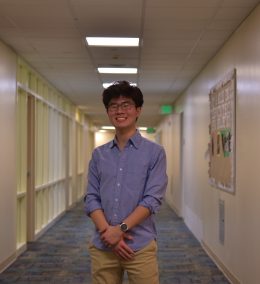
I’m tired. I, along with the nearly six-in-10 American adults, feel that political conversation with those who have opposing views is “stressful and frustrating.” This number has been steadily climbing over the past several years, to no one’s surprise.
I’m tired of navigating the minefield of political discourse, riddled with hostility and rancor. What was once a cornerstone of democratic society — a forum for robust debate and intellectual diversity — has devolved into a cacophony of invectives and flared tempers. It certainly feels as though we have reached a point of no return.
Despite my brooding, I firmly believe that the answer — at least in part — lies in resolving the insidious combination of negativity and partisan warfare. From a daily barrage of negative news stories to mudslinging and character attacks that define modern political campaigns, we are oversaturated with division. It is no wonder that many of us, myself included, prefer to keep our political beliefs close to the chest, for fear of becoming a casualty in the crossfire.
The American political landscape has been and still is shifting toward extremism and violence. Unfortunately, the media has not done much to amend the issue — in fact, it has done quite the opposite. The overwhelming majority of headlines focus on negative stories. At the heart of our collective consciousness lies a predisposition toward negativity — a phenomenon known as negativity bias. Rooted in our evolutionary history, humans have developed to give more attention to negative stimuli than positive ones. Even infants as young as three months old show a bias toward negative social behavior. Evidently, in order to capitalize on this learning, the media forms stories that are perceived largely negative in nature.
Although negativity bias is widely studied, the challenge comes with confronting our own biases. The first step toward diminishing bias is acknowledging that it exists in the first place. To move forward, we must employ a pragmatic approach to optimism. I emphasize that this is far from naïve idealism or wishful thinking. Rather, we must use our collective power to find common ground and foster empathy.
How do we accomplish this? I point you toward a conversation I had in my Foundations of Civic Engagement class with Professor David Campbell. When engaging in discourse with those who have vastly different views, empathy is a critical catalyst for optimistic conversation. Professor Campbell grounded our class with a simple, yet profound question — before acquiring a judgment on a person’s outlook, ask them — and yourself — what life experiences and circumstances led you to this perspective? This query is essential to building a community and instilling trust among each other. Here, we can focus on shared values and the acknowledgement of our own biases and prejudices.
Asking these questions is an active practice — empathy is not something that simply comes to fruition. It is part of a routine exercise. Similarly, optimism is not only a “perspective.” Melinda Gates puts it best — “Optimism isn’t a belief that things will automatically get better — it’s a conviction that we can make things better.”
As tempting as it may be to retreat into our respective echo chambers and disengage from the conversation altogether, the stakes are simply too high to remain silent. Political discourse is not merely a luxury, but a responsibility. To abdicate this responsibility is to cede power to those who thrive from discord. As Eric Liu, founder of Citizen University, prophetically cautioned, “if you don’t learn how to practice power, someone else will do it for you — in your name, on your turf, with your voice and often against your interests.”
It is clear that the solution to our political fatigue lies in an unyielding commitment to empathy — this is how we stay “optimistic.”
Clay Jeon is a freshman majoring in philosophy, politics and law.
Views expressed in the opinions pages represent the opinions of the columnists. The only piece that represents the views of the Pipe Dream Editorial Board is the Staff Editorial.


